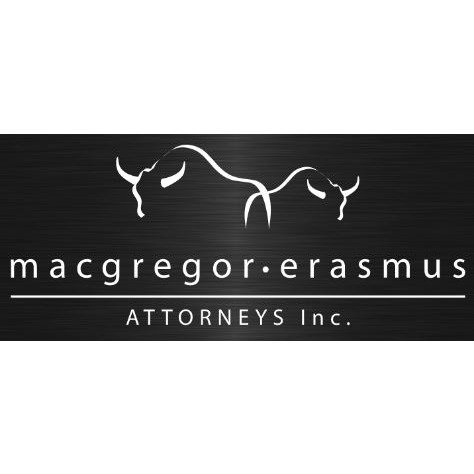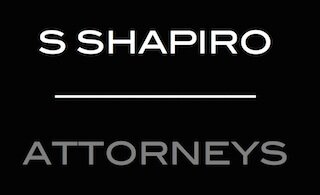Best Job Discrimination Lawyers in Johannesburg
Share your needs with us, get contacted by law firms.
Free. Takes 2 min.
List of the best lawyers in Johannesburg, South Africa
About Job Discrimination Law in Johannesburg, South Africa
Job discrimination in Johannesburg, South Africa, refers to unfair treatment or harassment of employees based on characteristics such as race, gender, disability, age, religion, or sexual orientation. The Constitution of South Africa and various statutory bodies strive to protect employees by providing a legal framework against discrimination. Despite these legal protections, incidents of discrimination in the workplace can still occur, prompting many to seek legal guidance to understand and assert their rights.
Why You May Need a Lawyer
Legal assistance may be required in several situations related to job discrimination, including:
- Experiencing discriminatory hiring practices based on non-job-related characteristics.
- Encountering unequal pay or benefits compared to peers performing similar roles.
- Facing harassment or biased treatment within the workplace.
- Being subjected to wrongful termination due to discriminatory reasons.
- Needing help to file claims or navigate the legal system regarding a discrimination case.
Lawyers specializing in employment law can provide critical guidance, helping individuals navigate complex legal issues, file complaints, and seek appropriate redress for discrimination cases.
Local Laws Overview
The primary legal frameworks addressing job discrimination in Johannesburg are enshrined in South Africa's Constitution, the Employment Equity Act (EEA), and the Labour Relations Act. Key aspects include:
- Constitution of South Africa: Outlaws discrimination based on race, gender, sex, pregnancy, marital status, ethnic or social origin, color, sexual orientation, age, disability, religion, conscience, belief, culture, language, and birth.
- Employment Equity Act (EEA): Promotes fair treatment in the workplace and implements affirmative action measures to redress disadvantages in employment experienced by designated groups.
- Labour Relations Act: Protects employees from unfair dismissal and unfair labor practices.
- Commission for Conciliation, Mediation, and Arbitration (CCMA): Provides a framework for dispute resolution in cases of job discrimination.
Frequently Asked Questions
What constitutes job discrimination in Johannesburg?
Job discrimination involves treating an employee or candidate unfairly based on characteristics like race, gender, age, or disability rather than abilities or merits related to the job.
How do I know if I've been discriminated against at work?
If you experience unfair treatment, harassment, or adverse employment decisions based on personal characteristics unrelated to job performance, you may be facing discrimination.
Can I file a complaint if I feel discriminated against?
Yes, you can file a complaint with the CCMA or bring a case to the Labour Court if you have adequate evidence to support your claims of discrimination.
Is age discrimination illegal in Johannesburg?
Yes, age discrimination is prohibited under South African law, protecting employees from being treated unfairly based on their age.
What role does the Employment Equity Act play in handling discrimination?
The EEA ensures equitable treatment and mandates affirmative action to promote equal opportunities and fair treatment, especially for historically disadvantaged groups.
How quickly should I take action if I suspect discrimination?
It is essential to act swiftly. Certain claims, especially those involving unfair dismissal, have strict time frames within which they should be lodged.
What is retaliation, and is it illegal?
Retaliation involves punitive actions against an employee who files a discrimination claim. It is illegal and can lead to further legal consequences for the employer.
Can I get fired for suing my employer over discrimination?
It is illegal for an employer to terminate an employee solely for pursuing a legal claim for discrimination. Such termination could be deemed unfair dismissal.
Do I need a lawyer to handle my discrimination case?
While not required, having a lawyer can be beneficial in understanding the intricacies of the law, gathering evidence, and advocating effectively on your behalf.
Is it expensive to hire a lawyer for a discrimination case?
Legal costs vary based on the complexity of the case and the lawyer's experience. Some law firms may offer initial consultations at no cost and work on a contingency basis.
Additional Resources
Individuals seeking further information or assistance may consider contacting:
- Commission for Conciliation, Mediation and Arbitration (CCMA): A statutory body providing free services for resolving labor disputes.
- South African Human Rights Commission: Addresses human rights issues and discrimination.
- Legal Aid South Africa: Offers free legal assistance to qualifying individuals.
- Various non-governmental organizations and advocacy groups specialized in workplace equality and rights.
Next Steps
If you believe you have faced job discrimination, consider taking the following steps:
- Document instances of discrimination, including dates, times, witnesses, and communications.
- Consult with an experienced employment lawyer to evaluate your case.
- Consider filing a complaint with the CCMA or the Labour Court if advised.
- Engage with support groups and organizations for further guidance and support.
Remember, it is crucial to act promptly due to time constraints associated with legal claims. A lawyer can help you understand deadlines and prepare the necessary documentation.
Lawzana helps you find the best lawyers and law firms in Johannesburg through a curated and pre-screened list of qualified legal professionals. Our platform offers rankings and detailed profiles of attorneys and law firms, allowing you to compare based on practice areas, including Job Discrimination, experience, and client feedback.
Each profile includes a description of the firm's areas of practice, client reviews, team members and partners, year of establishment, spoken languages, office locations, contact information, social media presence, and any published articles or resources. Most firms on our platform speak English and are experienced in both local and international legal matters.
Get a quote from top-rated law firms in Johannesburg, South Africa — quickly, securely, and without unnecessary hassle.
Disclaimer:
The information provided on this page is for general informational purposes only and does not constitute legal advice. While we strive to ensure the accuracy and relevance of the content, legal information may change over time, and interpretations of the law can vary. You should always consult with a qualified legal professional for advice specific to your situation.
We disclaim all liability for actions taken or not taken based on the content of this page. If you believe any information is incorrect or outdated, please contact us, and we will review and update it where appropriate.
















